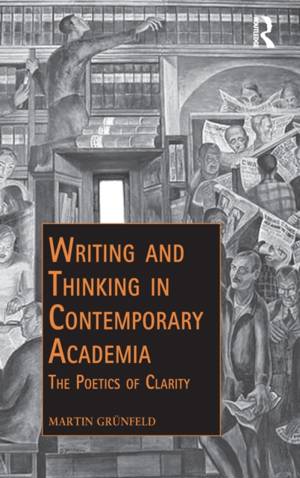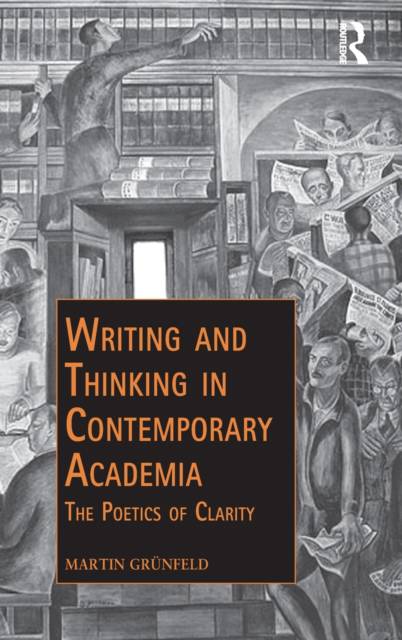
- Retrait gratuit dans votre magasin Club
- 7.000.000 titres dans notre catalogue
- Payer en toute sécurité
- Toujours un magasin près de chez vous
- Retrait gratuit dans votre magasin Club
- 7.000.0000 titres dans notre catalogue
- Payer en toute sécurité
- Toujours un magasin près de chez vous
Description
Across disciplinary borders, clarity is taken for granted as a cardinal virtue of communication in contemporary academia. But what is clarity, how is it practised in writing across disciplinary borders and how does it affect our ways of researching and thinking? This book explores such questions by scrutinising the ideal of clarity beyond its apparently self-evident value. Through a multi-methodological empirical analysis of the ideal of clarity, the author offers a sketch of what is termed 'the poetics of clarity', which is unfolded as a field of tension with important implications for sentence formation, authorial positioning and textual organisation. By way of a series of reflections on the possible consequences of this for thinking, this volume also explores the parts of knowledge production that may be marginalised, especially poetic language use, biases, interests and contexts, multi-dimensional arguments and errors. Revealing a positivist bias and a regime of high-speed consumption that characterise what, in certain regards, might be considered a productive space for knowledge production, Writing and Thinking in Contemporary Academia will appeal to scholars with interests in the sociology of knowledge, continental philosophy, the philosophy of science and academic writing.
Spécifications
Parties prenantes
- Auteur(s) :
- Editeur:
Contenu
- Nombre de pages :
- 158
- Langue:
- Anglais
- Collection :
Caractéristiques
- EAN:
- 9781138312135
- Date de parution :
- 20-06-19
- Format:
- Livre relié
- Format numérique:
- Genaaid
- Dimensions :
- 156 mm x 234 mm
- Poids :
- 417 g

Les avis
Nous publions uniquement les avis qui respectent les conditions requises. Consultez nos conditions pour les avis.






